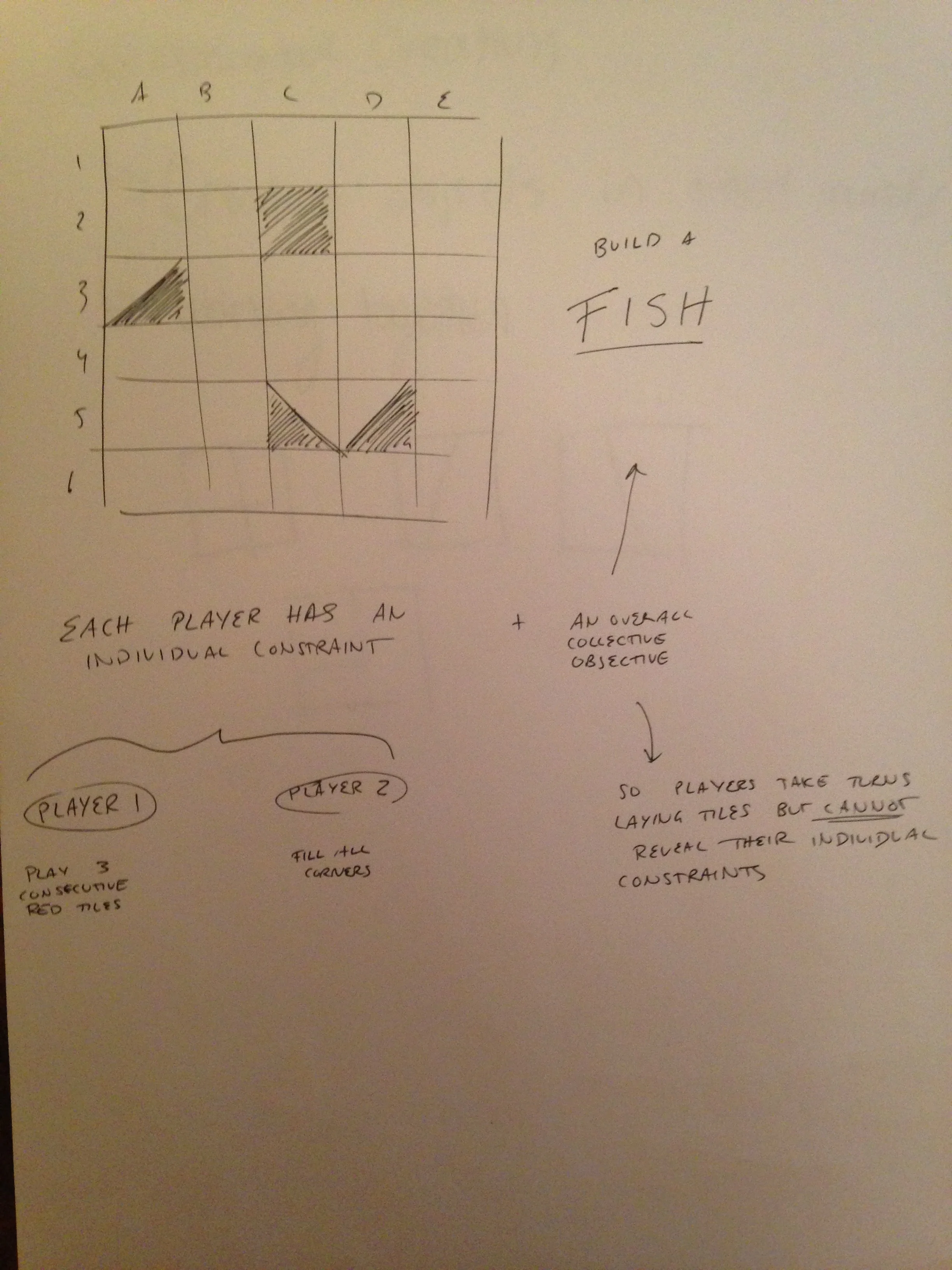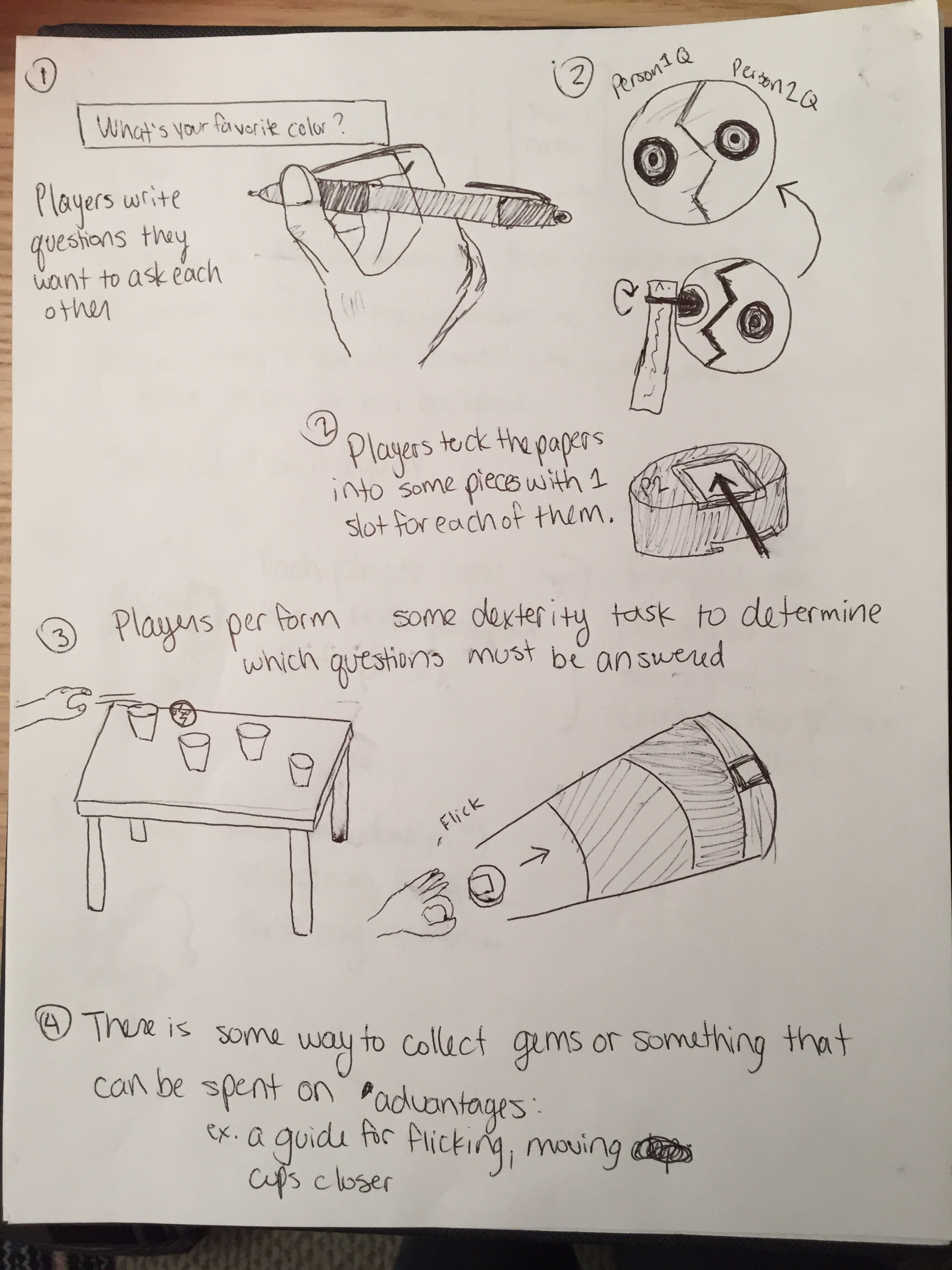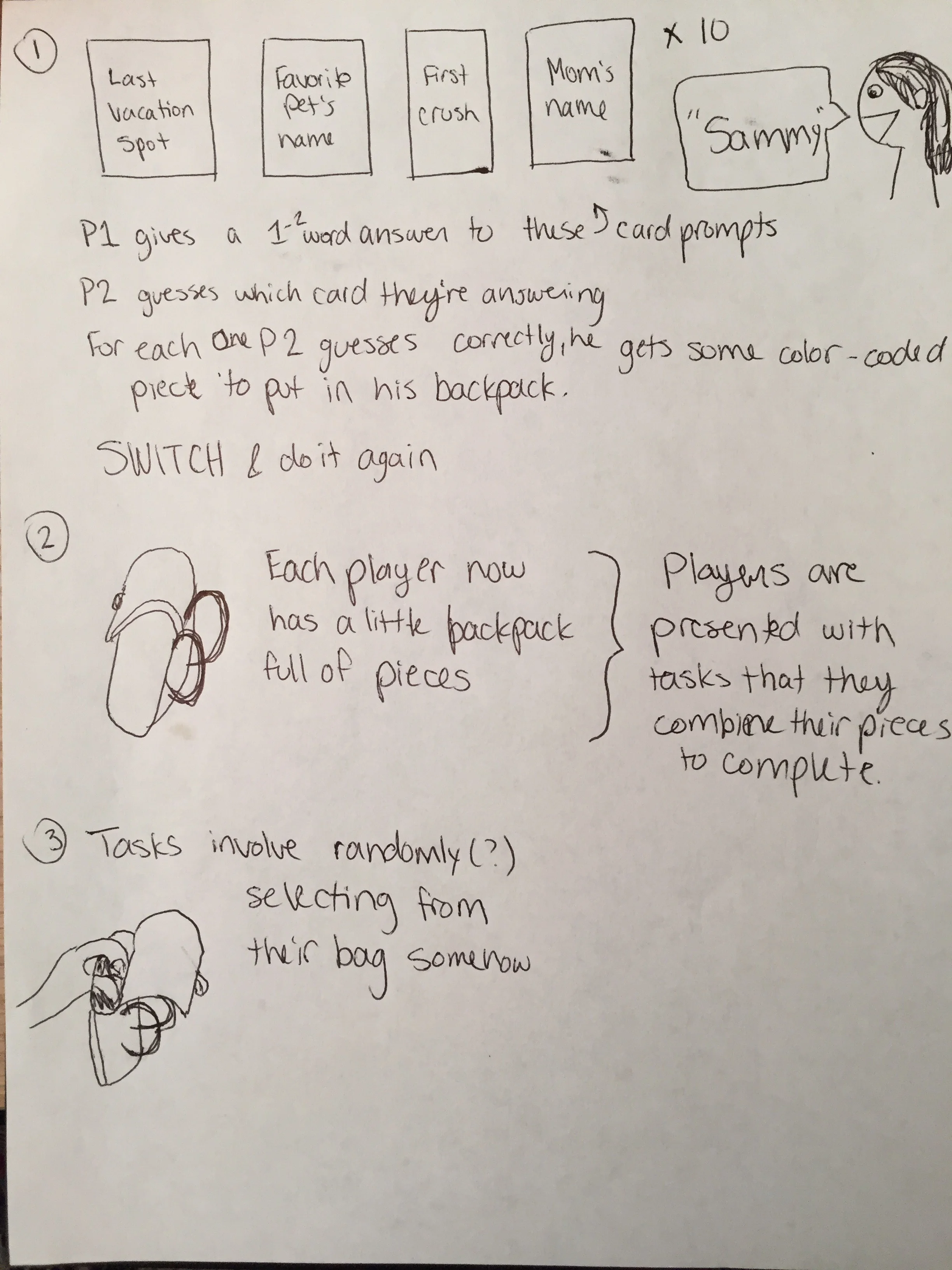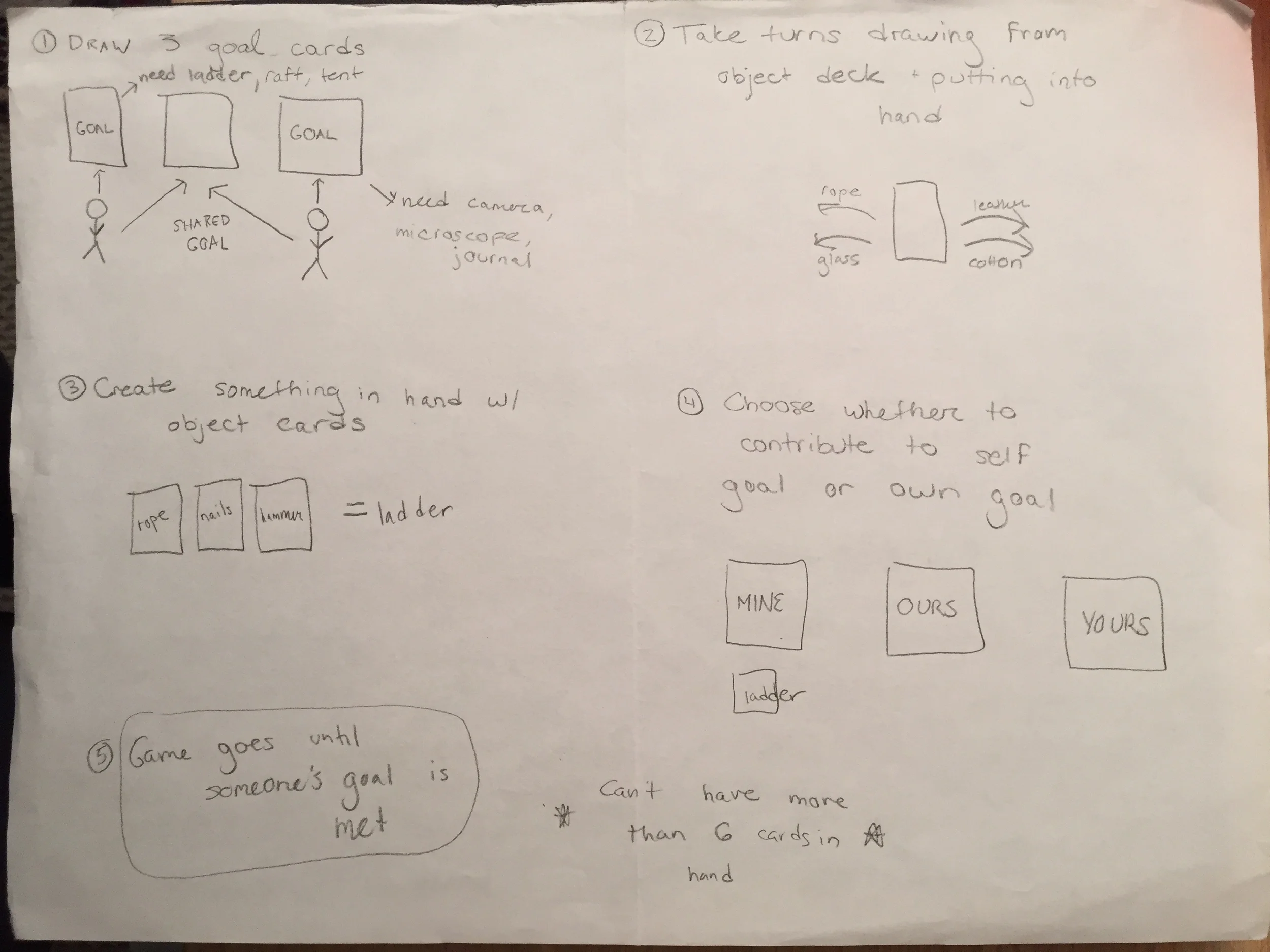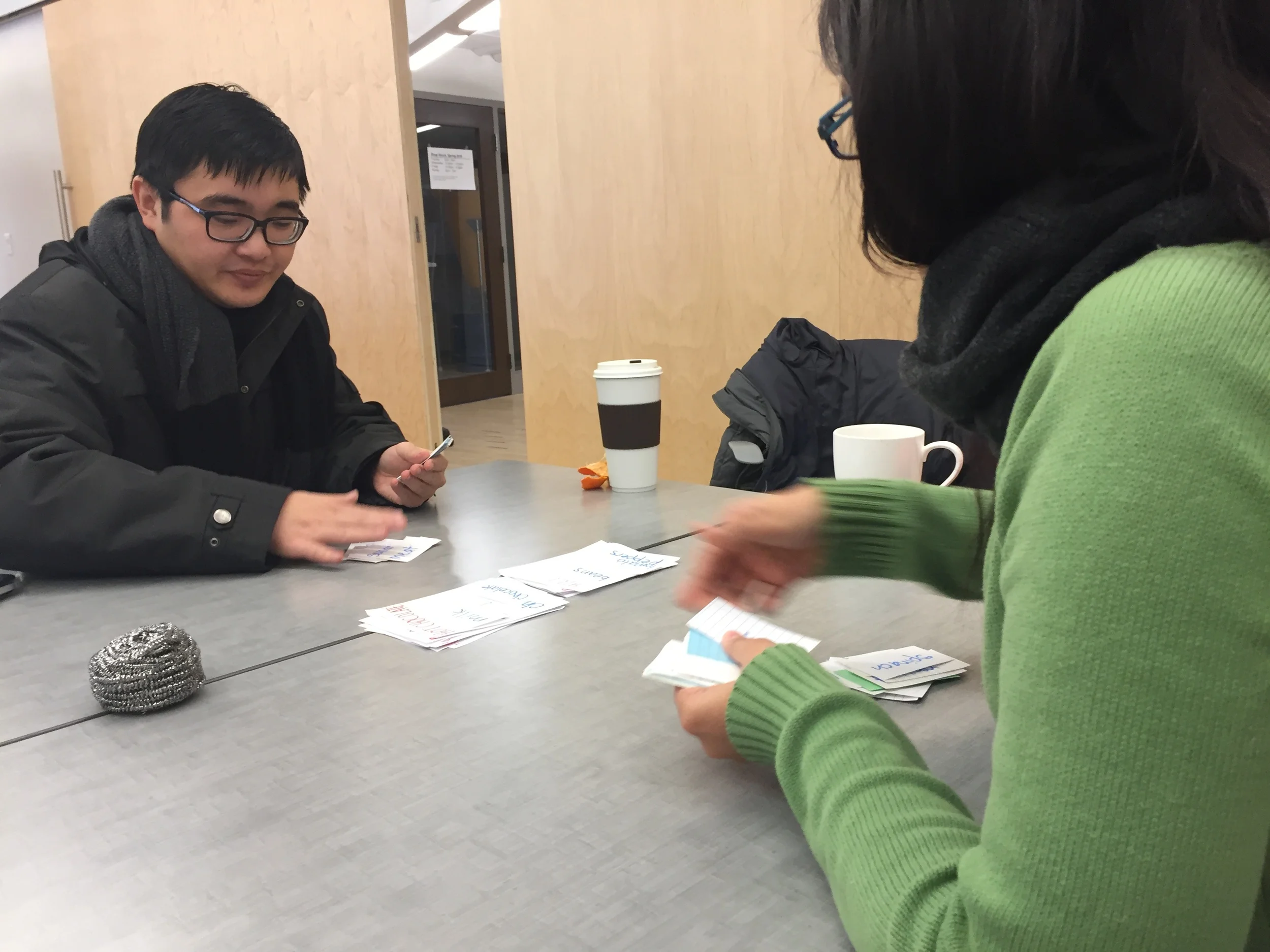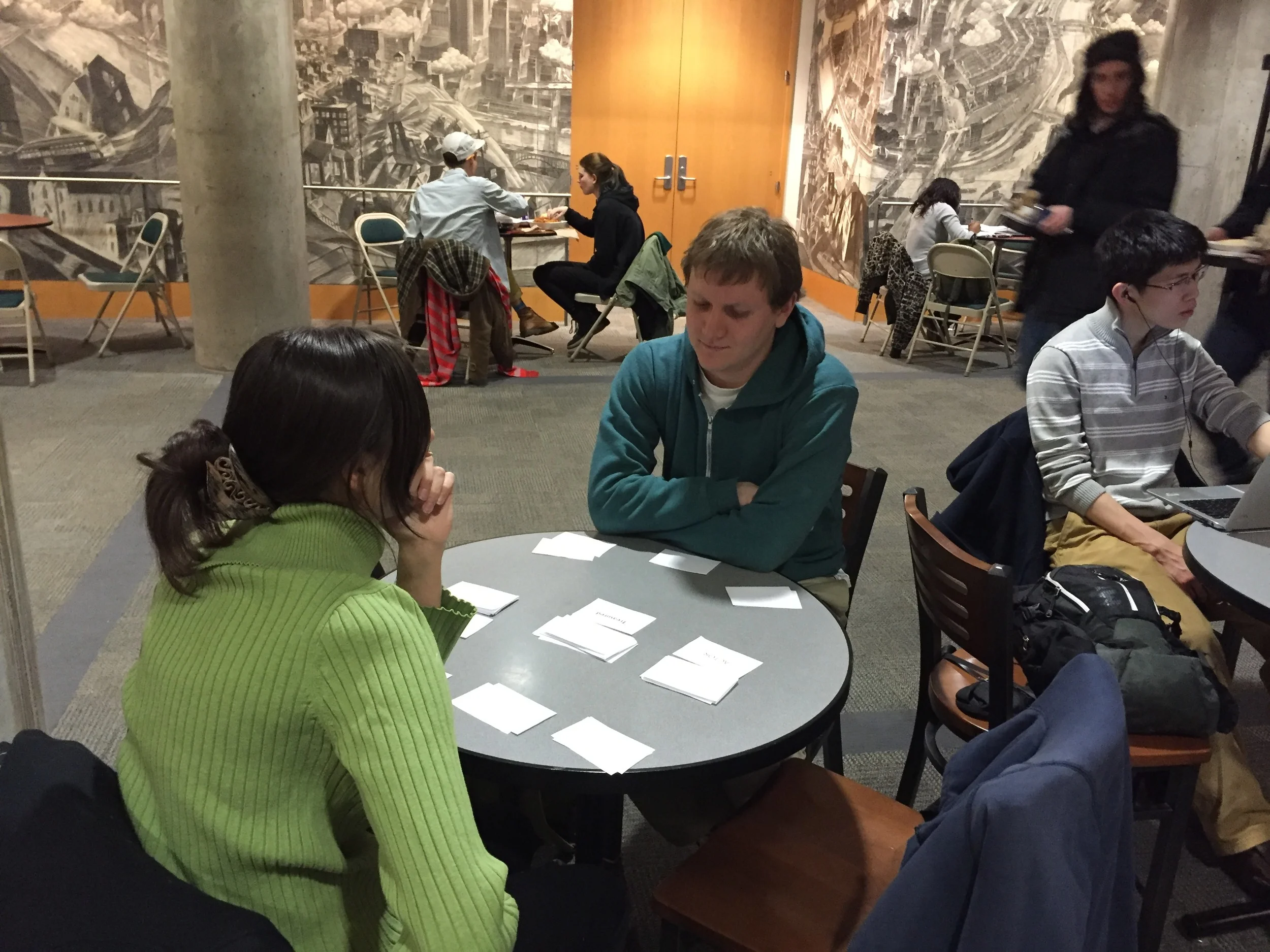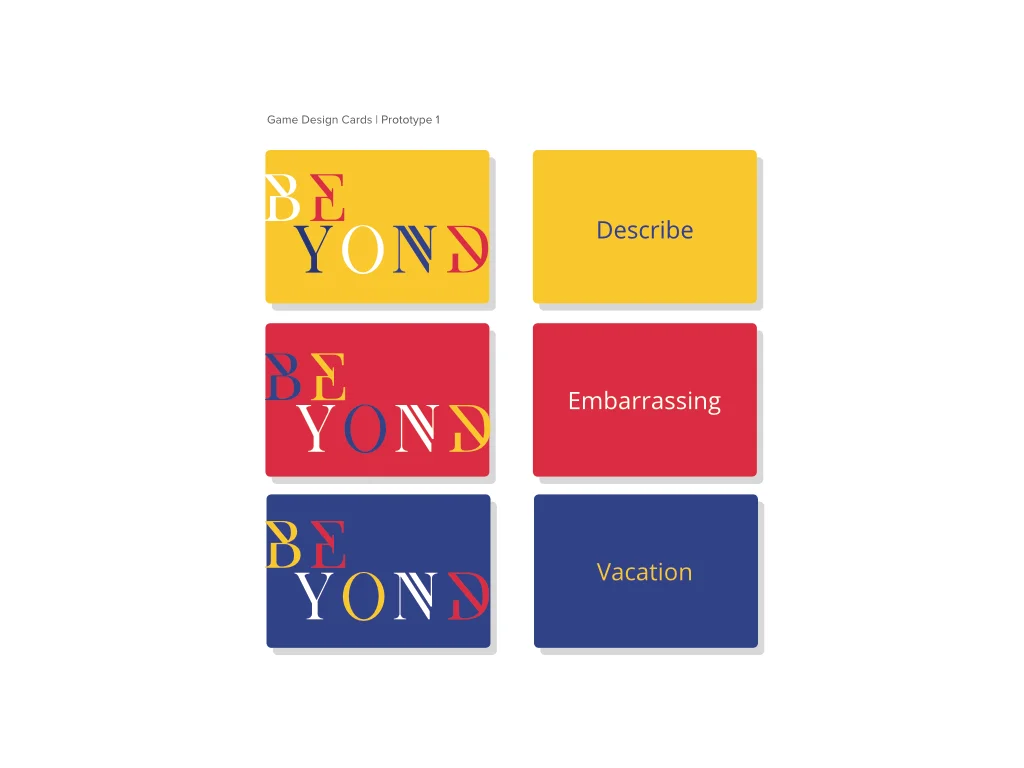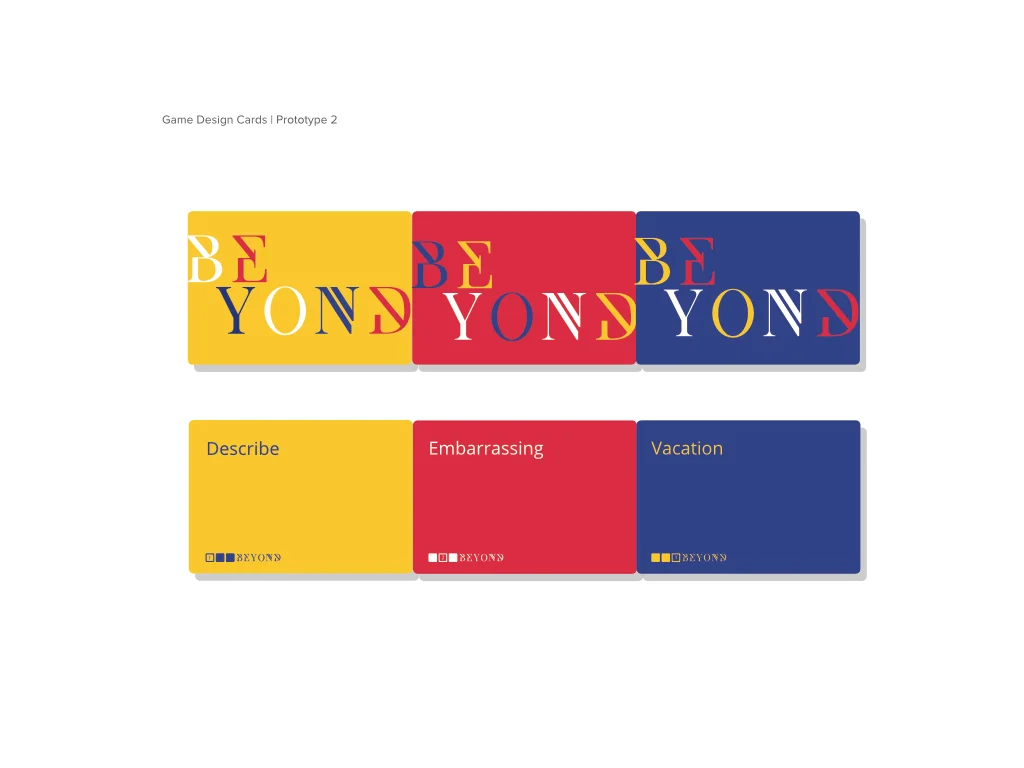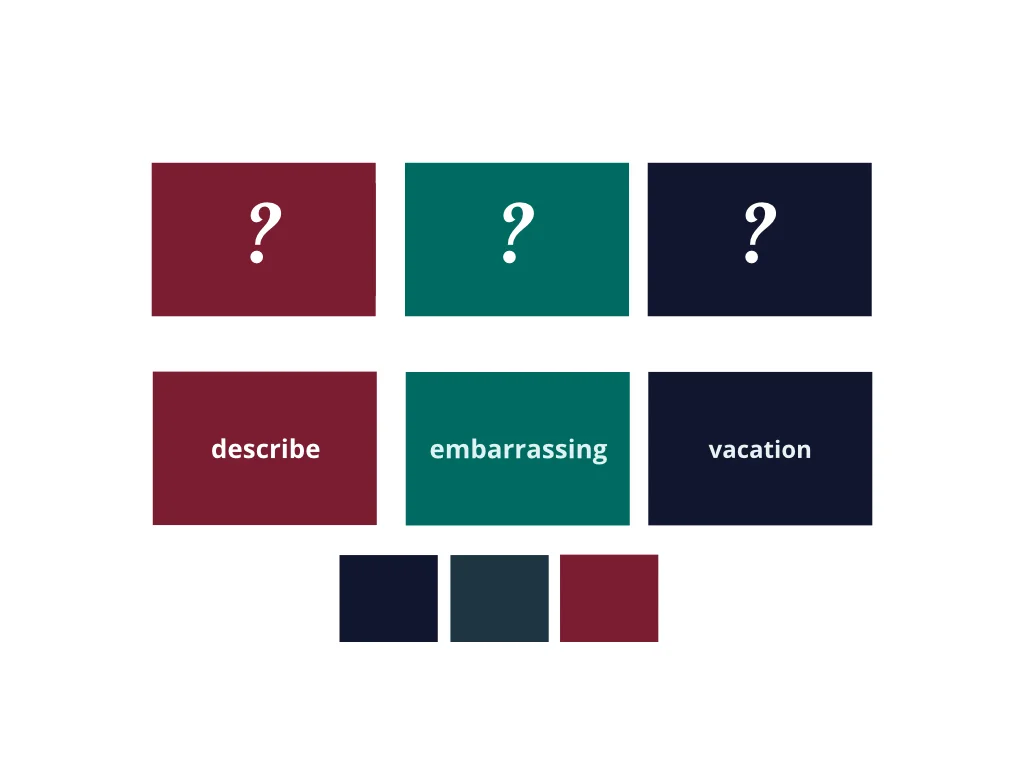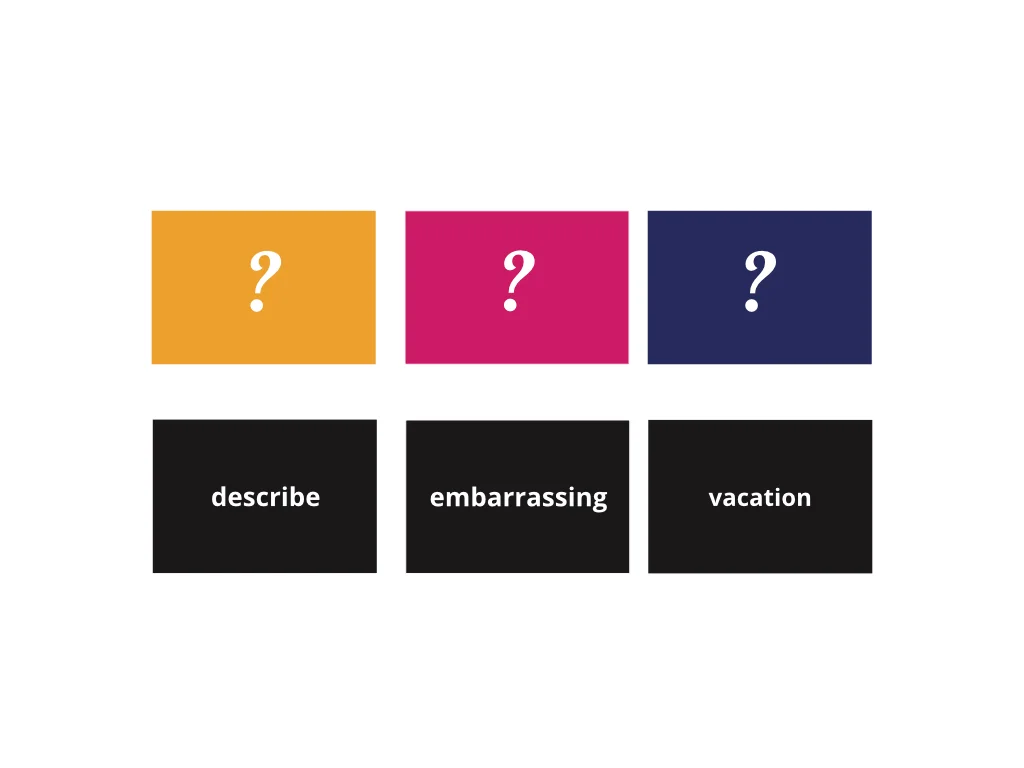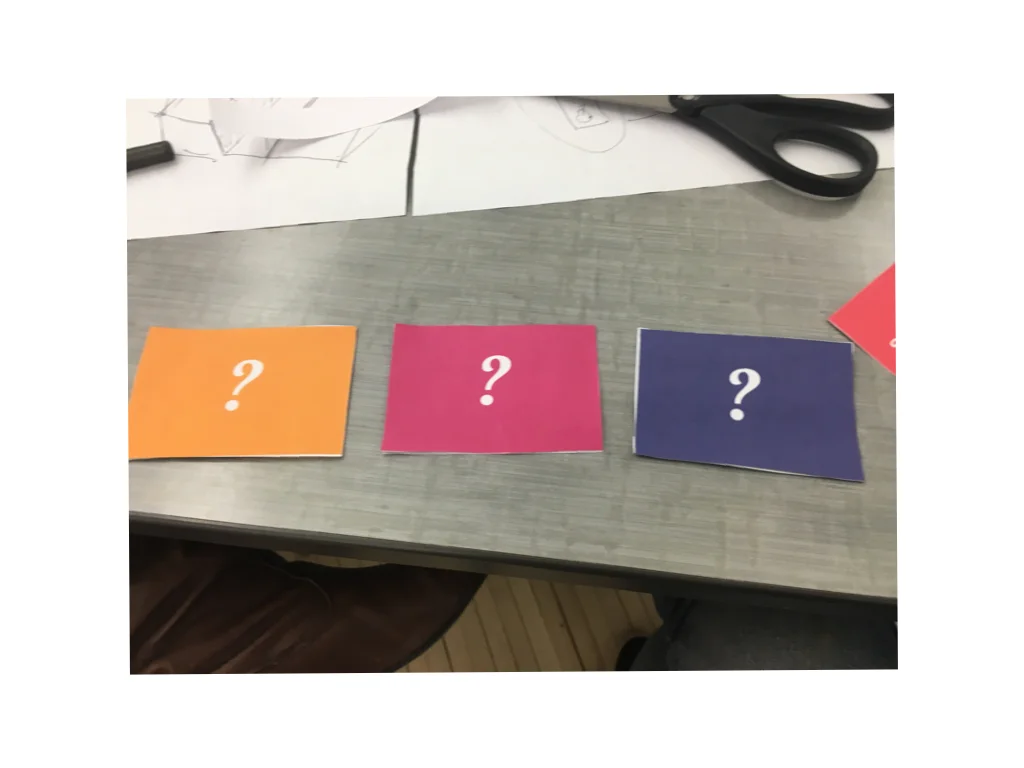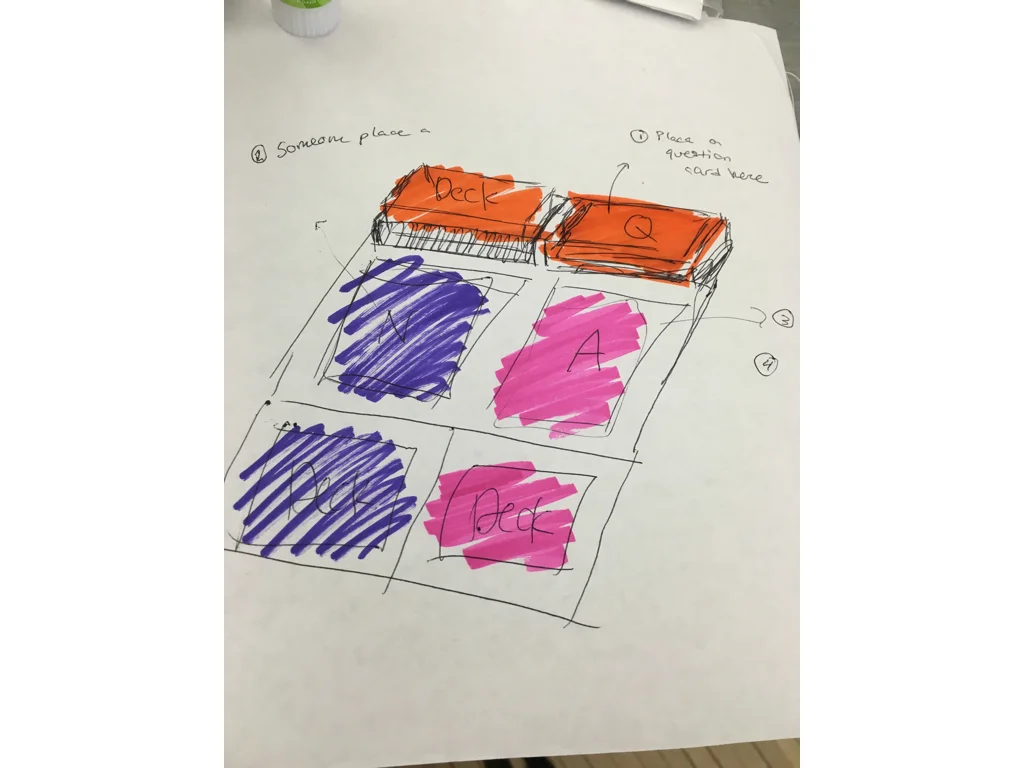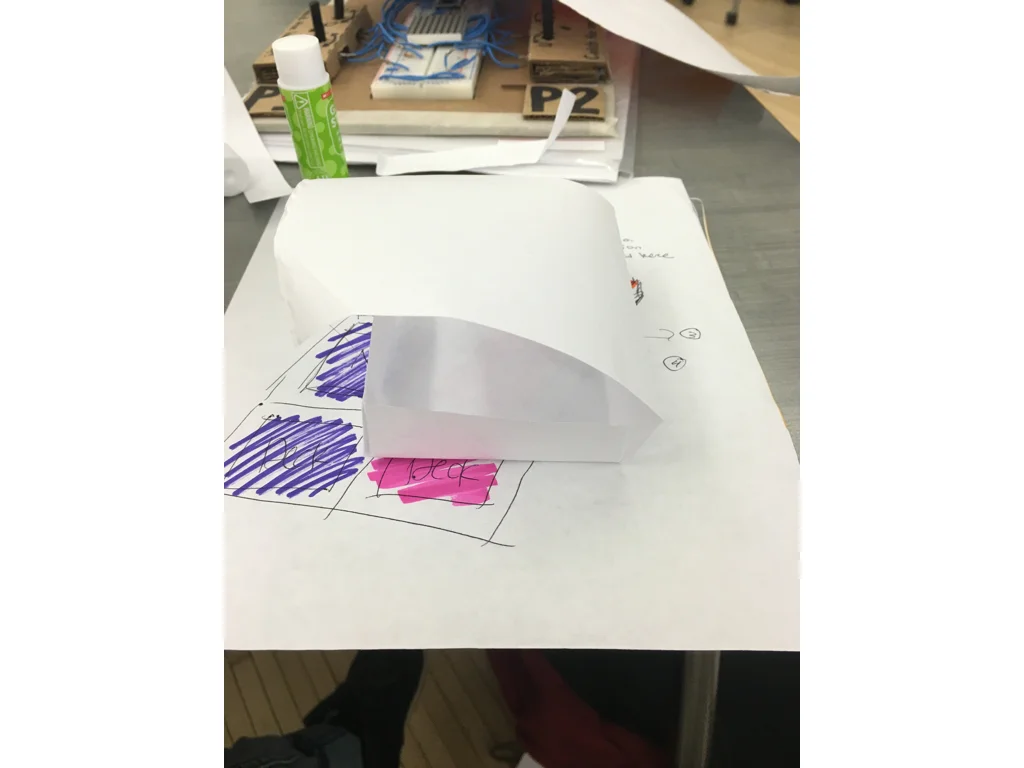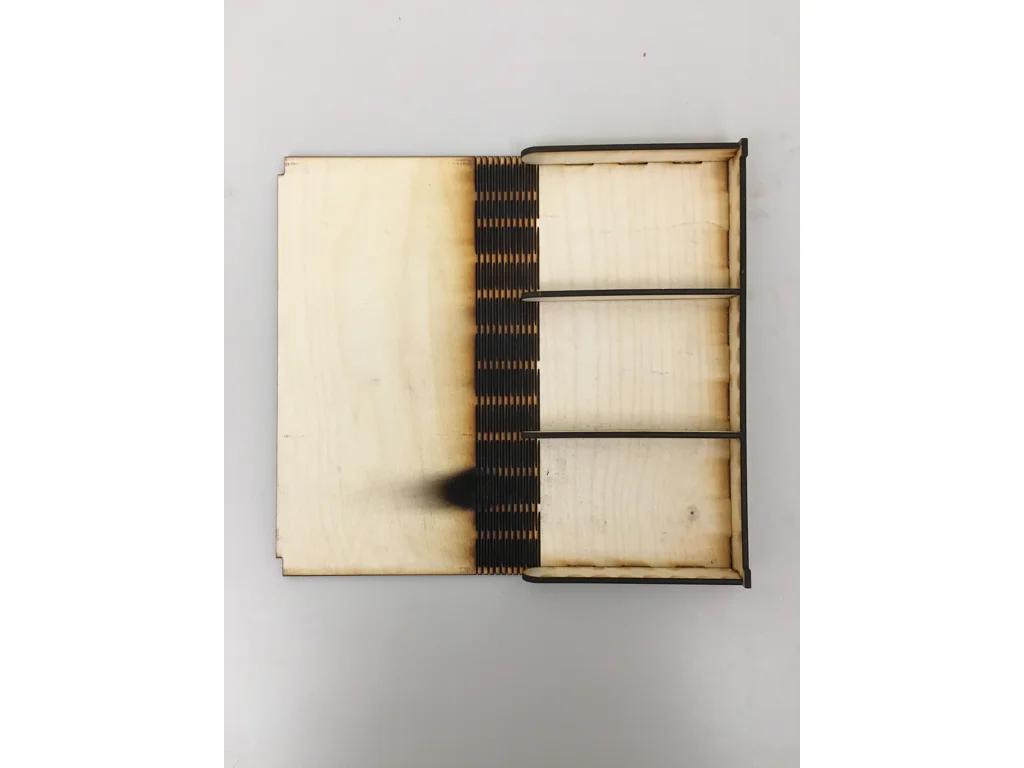A card game that helps people move past small talk on a first date and ask creative, meaningful questions.
Timeline: 4 weeks, team of 5
Role: game ideation & design
Keywords: game design, cards, experience design, product design, conversation, sketching, journey mapping
Summary
Assignment
Create a game incorporating aspects of the games Ascension and Scribblenauts. It must be a game for first dates and cannot have points.
Outcome
We designed a card game with three decks of keywords (nouns, adjectives, and question words) that allows players to come up with creative questions and facilitates meaningful conversation.
Takeaways
I learned how to design tangible interactions between users, and to do so given strict constraints. I thought critically about fun and interpersonal dynamics, and was able to iterate on design ideas with these specific things in mind.
Process
Examination of current games and materials
We analyzed various games and their materials to extract themes we wanted to explore in our own game. We liked the idea of incorporating card decks because of their physicality and familiarity. We also wanted to make sure that the game allowed players to be creative in the process of getting to know one another. We spent time playing the game Carcassone and loved the aspect of building that it incorporated, as well as the feeling of anticipation that was inherent in turn-taking and within the turns themselves. We created a journey map of this anticipation during gameplay, and moved forward into sketching game ideas with these things in mind.
Ideation & Sketching
Our sketching and ideation process helped us explore various game characteristics in different combinations.
Physicality. The idea of having players collaborate on physical tasks seemed promising for a first date in terms of facilitating bonding and bringing another aspect of activity - besides just talking - into the mix. Early ideas included having them work together to get a ping-pong ball into a small cup in order to progress through your turns.
Building. Having players collaborate on building something using card decks seemed like it would strengthen feelings of teamwork and that the creation of something was a wholesome first-date idea. Early ideas included dealing out "part" cards from your hand in order to build "whole" objects as a team, like contributing "ingredient" cards in order to complete "meals."
Asking. Incorporating questions into our game seemed like a natural fit, so that our game could facilitate the process of the players getting to know each other. Early ideas included games where players would write sets of questions and then complete tasks to "earn" asking questions.
User testing
We did a few rounds of user testing in order to try out different lo-fi game prototypes - one where players competed in a speed-type game to build meals out of their ingredient cards, and another where they built questions to ask one another using key-word cards from their hands. Our initial rounds of testing with friends showed no clear preference for one over the other. But, when we simulated a first date by user-testing our games with people who had never met before, there was a clear winner - they loved getting to know one another using the question cards, whereas the meal-building game directed focus towards the competitive nature of play and gave no opportunity for conversation.
design iteration
Word Generation. We generated long lists of nouns and adjectives and then curated them by removing words when they created combinations that felt too personal or pessimistic for first-date conversation. We wanted to keep conversation pleasant and lighthearted, and didn't want players to feel pressured to answer questions that had themes they might want to avoid, like old flames or sad moments. However, we also wanted to balance this with our desire to create meaningful conversation - our final word list inspired questions that were deeper than small talk but still felt comfortable to talk about with a new person.
Card Design. The early process of analyzing well-design game materials inspired us to design cards that would imply the purpose and nature of gameplay, even without reading the rules. We wanted to create curiosity and imply the differing roles of the three decks of cards while simultaneously making them part of the same overall theme.
Box Design. We wanted our container to look equally at home in a restaurant, coffee shop, bar, or home game shelf. We also wanted it to be a self-contained game, so that you don't have to remove the decks from the box and you can deal the cards out onto the open flap during play. Lastly, we wanted to inspire people to open the box by making it simple, handmade, and intriguing - like an old book.
Final Result
Two Ways To Play. To respect the various settings in which gameplay might take place, we created two possible ways to play. In the first, the players simply flip over the top card of each deck and construct a question. In the second, players have cards in their hand and contribute key words that they pick themselves in order to build a question as a team. We wanted to allow a method of involved play while also realizing that folks waiting for their food to arrive at a restaurant might just want to try out a round or two without commitment, the way bars sometimes leave Trivial Pursuit cards sitting around.
Three Words, Lots of Options. Allowing players to be creative in their question-asking is a central part of the game. We found that the same set of three key-words, proposed to various players, elicited extraordinarily different questions. In this way, the question itself displays the personality of the asker, without pressuring them to come up with topics on their own. It also allows the depth of the question to be adjusted to the player's own comfort level.
No Points, No Winning, No Ending. We decided it wasn't right for our game to have a prescribed ending. We felt that our definition of successful play was to have it eventually just turn into an engaging conversation. In other words, the goal of our game is for players to stop playing it naturally. We also didn't want there to be extra responsibilities, like keeping track of points or determining winners. We didn't want players to be pitted against one another or have any barriers to getting to know one another.




